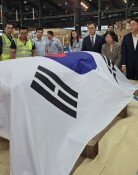Government neglects illegal overseas job switches of high-tech talent
Government neglects illegal overseas job switches of high-tech talent
Posted March. 05, 2024 07:52,
Updated March. 05, 2024 07:52
Amid a severe shortage of talent in the high-tech industry, there is an increasing number of cases where employees of large domestic companies leave their jobs after providing false reasons to work for overseas competitors who offer better conditions, leaking core technologies. Companies often don't even know that their employees have left for competitors, and even if they find out later and file a lawsuit, it is ineffective in stopping the outflow of talented individuals due to lengthy trial procedures.
A person who headed the semiconductor development team for fifth-generation (5G) mobile communications at Samsung Electronics left the company in September last year for childcare and housework. However, within four days, the employee transferred to a rival company, Qualcomm. When Samsung learned of the incident six months later, it filed a court application for an injunction to prevent the job switch, but it took eight months before the court issued the decision. Another person, who was the head of LG Display's business strategy team for organic light-emitting diodes (OLEDs), left the company in May last year, claiming that he was moving to a partner company. Still, he moved to a competitor, China's TCL. LG Display filed a lawsuit four months later, and the prevention decision was not issued until seven months after his departure.
The problem is that it is hard for the company to verify if an employee lies and moves to a competitor overseas. Even if the company does find out later, it has no recourse but to file an injunction. Moreover, it takes the court over a year to process an injunction application involving technical issues. Even if the company wins the case, the court-imposed restriction is only for one to two years, making it virtually ineffective.
In response to these issues, the Ministry of Trade, Industry, and Energy announced in August last year that it would introduce a system to designate and manage ‘specialized personnel’ under the National Advanced Strategic Industry Act (NASIA). Once key employees of advanced strategic industry companies are designated as specialized personnel by the government, the companies can sign non-compete agreements with them to prevent leakage of secrets and limit overseas job switches. If a company is concerned about technology leakage, it can also request the government to provide the immigration information of such personnel. However, the government hasn't taken substantial action beyond discussions.
Meanwhile, Korea's competitors are building high barriers to prevent the outflow of key talent, such as Taiwan, which restricts its semiconductor engineers from working for Chinese companies. Unless the government and companies work together to implement systems aimed at preventing brain drain to foreign companies, it will be increasingly difficult for Korea to defend its technological prowess in high-tech industries that China has already surpassed in many areas.




![“李는 2인자 안둬…조국 러브콜은 정청래 견제용” [정치를 부탁해]](https://dimg.donga.com/c/138/175/90/1/wps/NEWS/IMAGE/2026/01/26/133233066.1.jpg)

![[속보]트럼프 “한국산 車-상호관세 15%→25% 인상…韓국회 비준 안해”](https://dimg.donga.com/c/138/175/90/1/wps/NEWS/IMAGE/2026/01/27/133236283.1.jpg)
